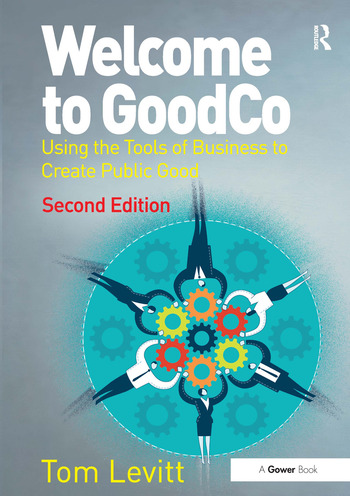Welcome to GoodCo
This second edition of Welcome to GoodCo updates the author’s critically acclaimed analysis of how the tools of business are being (and ought to be) used to help tackle the great problems of both the planet and of local communities.
In exploring the increasingly politically relevant issue of ‘responsible capitalism’ – and its variations – he asks what it means, where it came from, why politicians are so timid around the issue and what exactly are the obstacles this crusade will have to face.
He argues that business doing good has to be supported by a business case, as that is what makes it sustainable, but that huge benefits can be reaped.
As 60 of the world’s top 100 economies are corporates, not countries, businesses that are not helping to create solutions become part of the problem.
Added topics in the 2015 edition include:
- the growth of social value in the commissioning of services and what business can learn from this;
- the Social Progress Index as an alternative to GDP;
- and the role for greater corporate citizenship as a way of enhancing employee engagement, with all the benefits that this can bring to a company.
It updates the stories and data which made the first edition so readable. In a world in which businesses of all sizes frequently find some of their practices at odds with the basic principles of their customer or citizen promise, Welcome to GoodCo offers a realistic, commercially hard-nosed approach to reframing business in society.
About Tom Levitt
Tom Levitt was a member of parliament from 1997-2010. He is a writer and consultant on charity partnerships, a sustainability adviser to Boots and a non-executive director of both Digital Outreach and Good Measures ethical business consultancy.
Reviews
“Levitt’s impressive and well researched book makes an important contribution to the debate on sustainable capitalism. He argues with great insight that we need to look beyond the traditional views of the public, private and voluntary sectors, each in its place, as this will hold us back in the globalised, interdependent world of the twenty-first century.”
Stephen Timms MP
“I very much enjoyed the book that is within the tradition of the “pracademic” – reflective and evidence based with a set of clear outcomes.”
Paul Palmer, Cass Business School, UK



